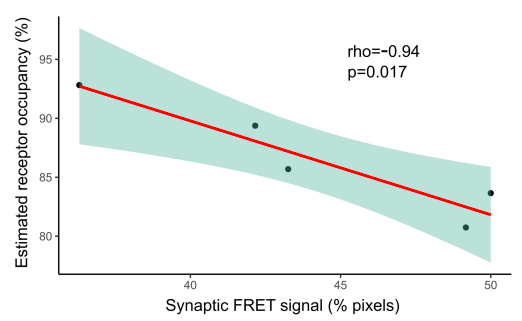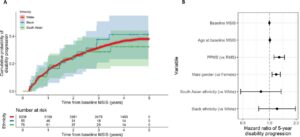
Martí Colom-Cadena, et al. – University of Edinburgh.
Background: Existing studies show that CT1812, a modulator of transmembrane protein 97 (TMEM97) which is currently in phase 2 clinical trials, improves cognition in an AD mouse model.
This Study: Colom-Cadena and colleagues found that in brain tissue from patients with AD, amyloid-β (Aβ) binds to TMEM97 at synapses. Additionally, in AD model mice given CT1812, the fraction of receptors occupied by the drug negatively correlated with Aβ-TMEM97 binding, suggesting that CT1812 is preventing their interaction.
Bottom Line: These results provide further mechanistic support for testing the use of this treatment in AD.




